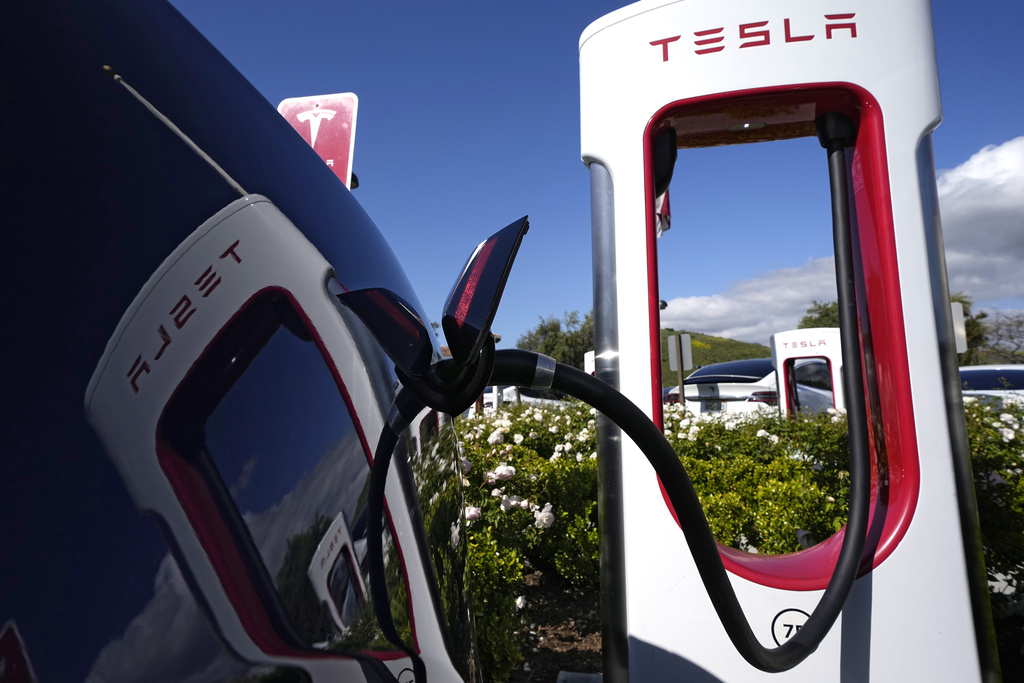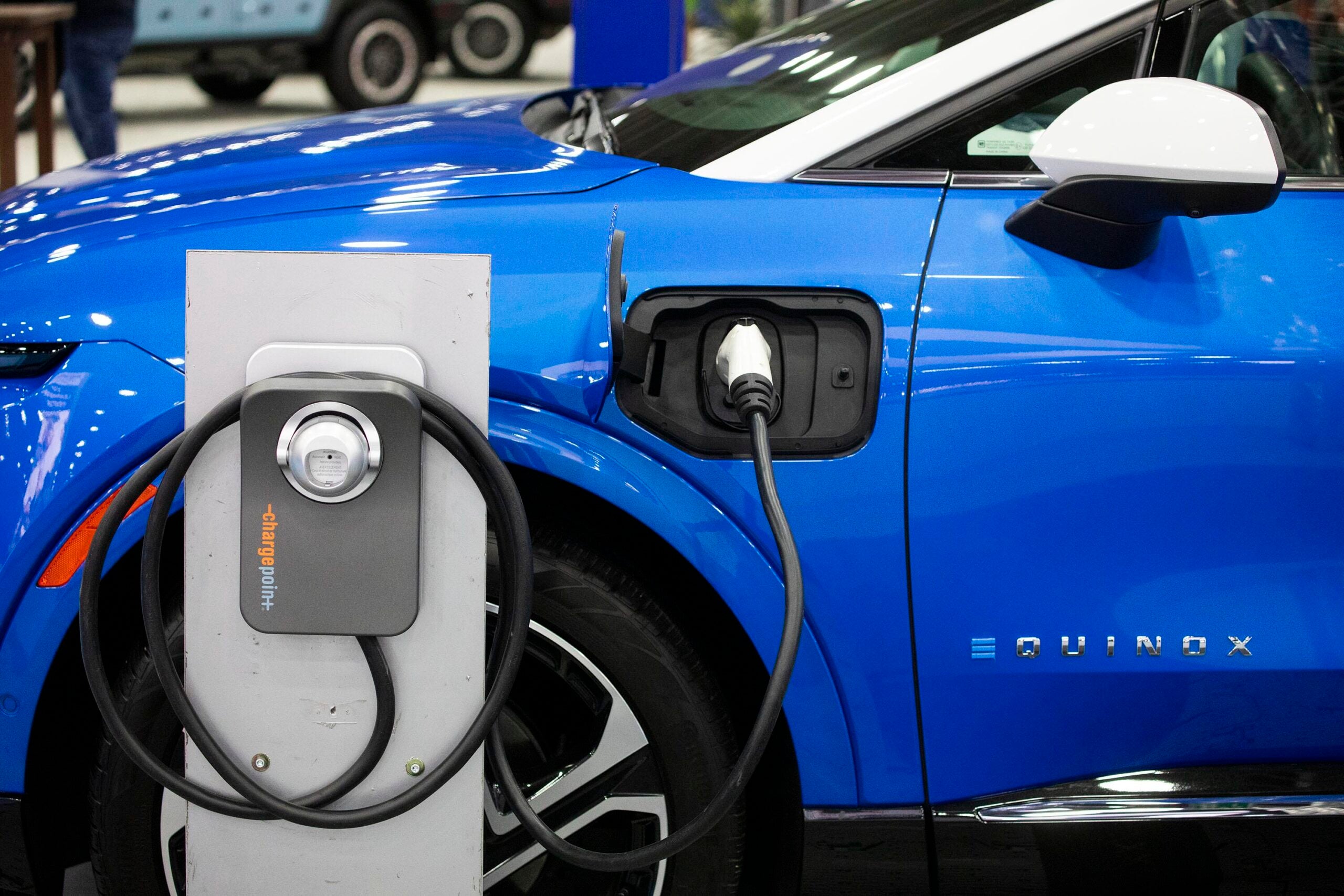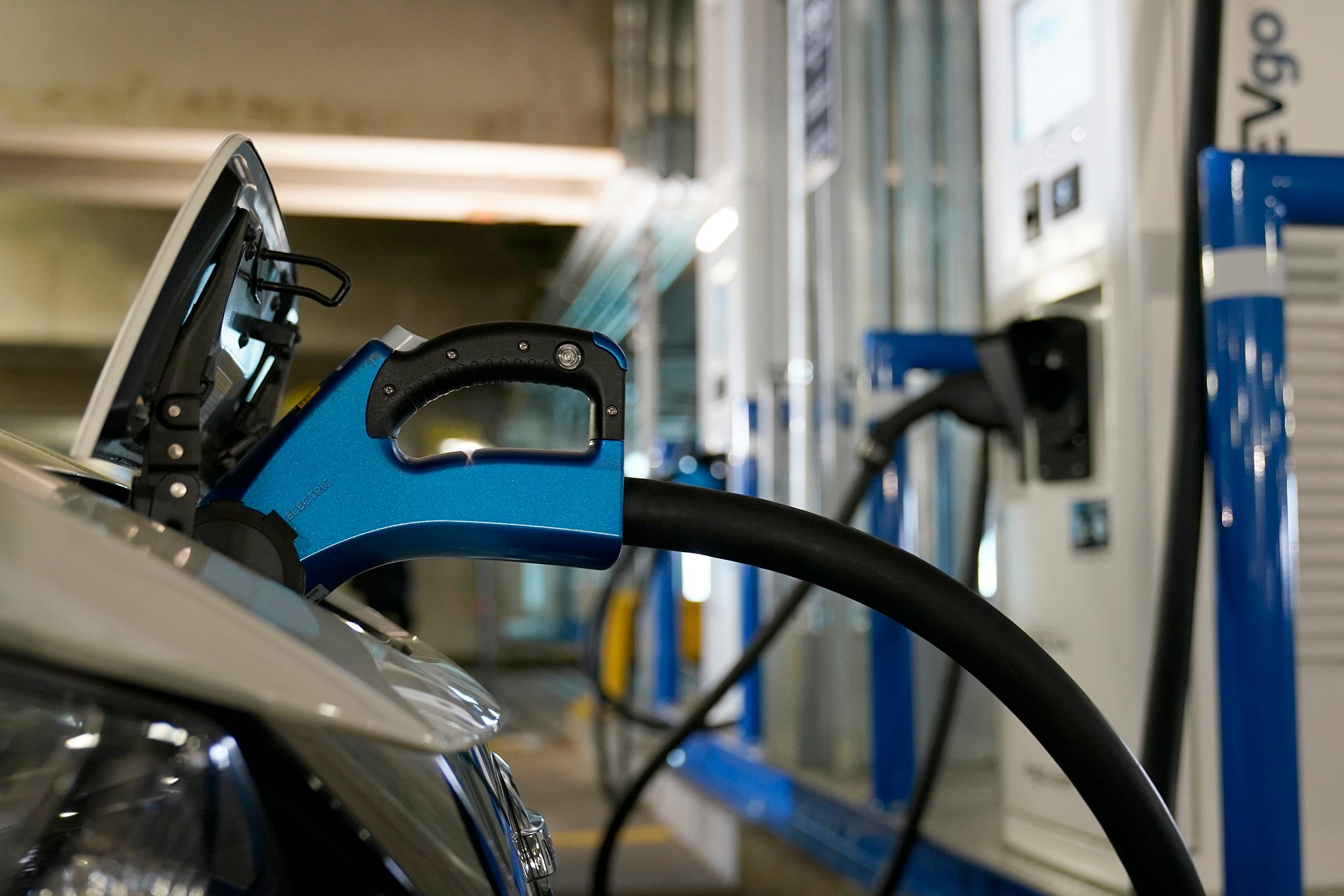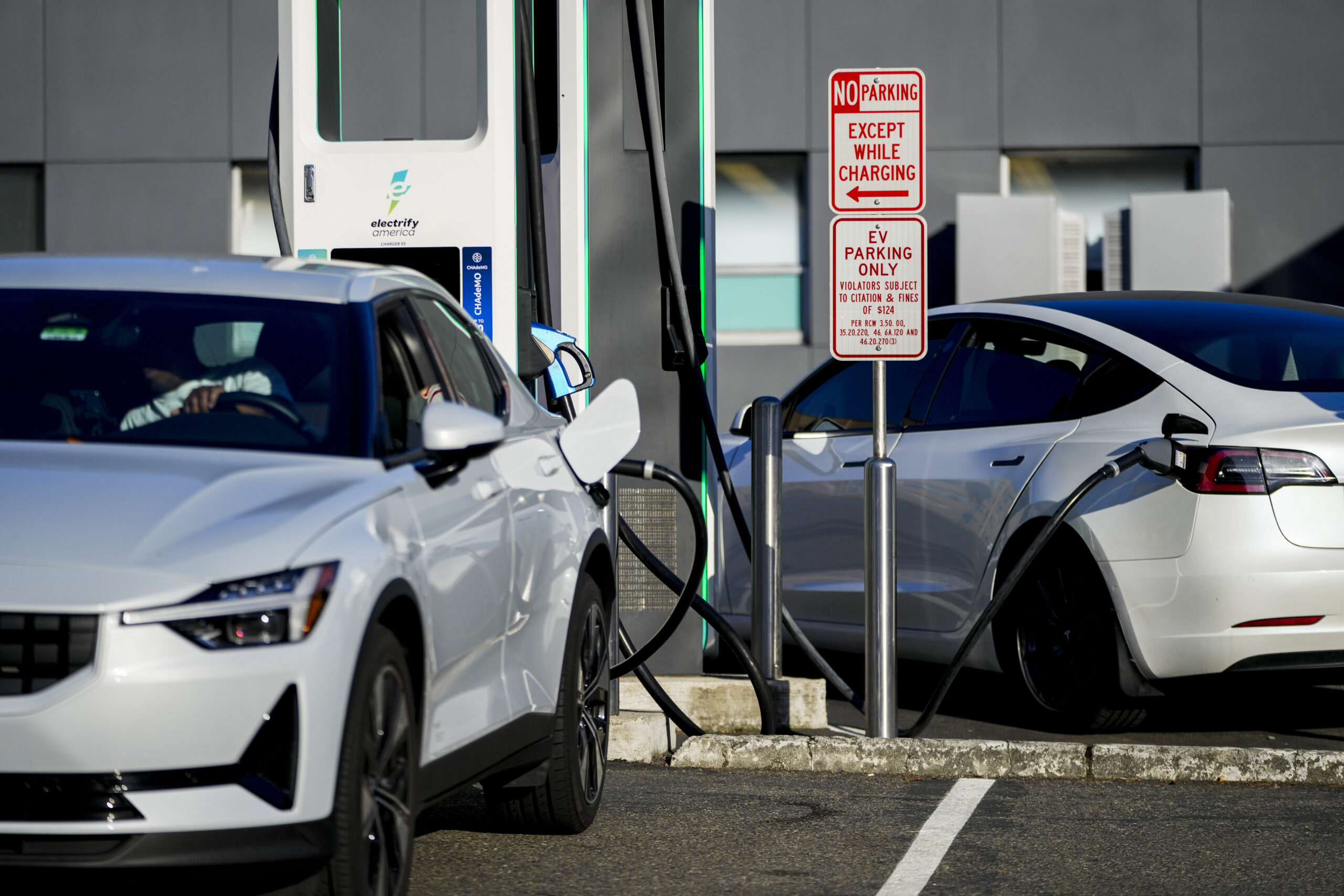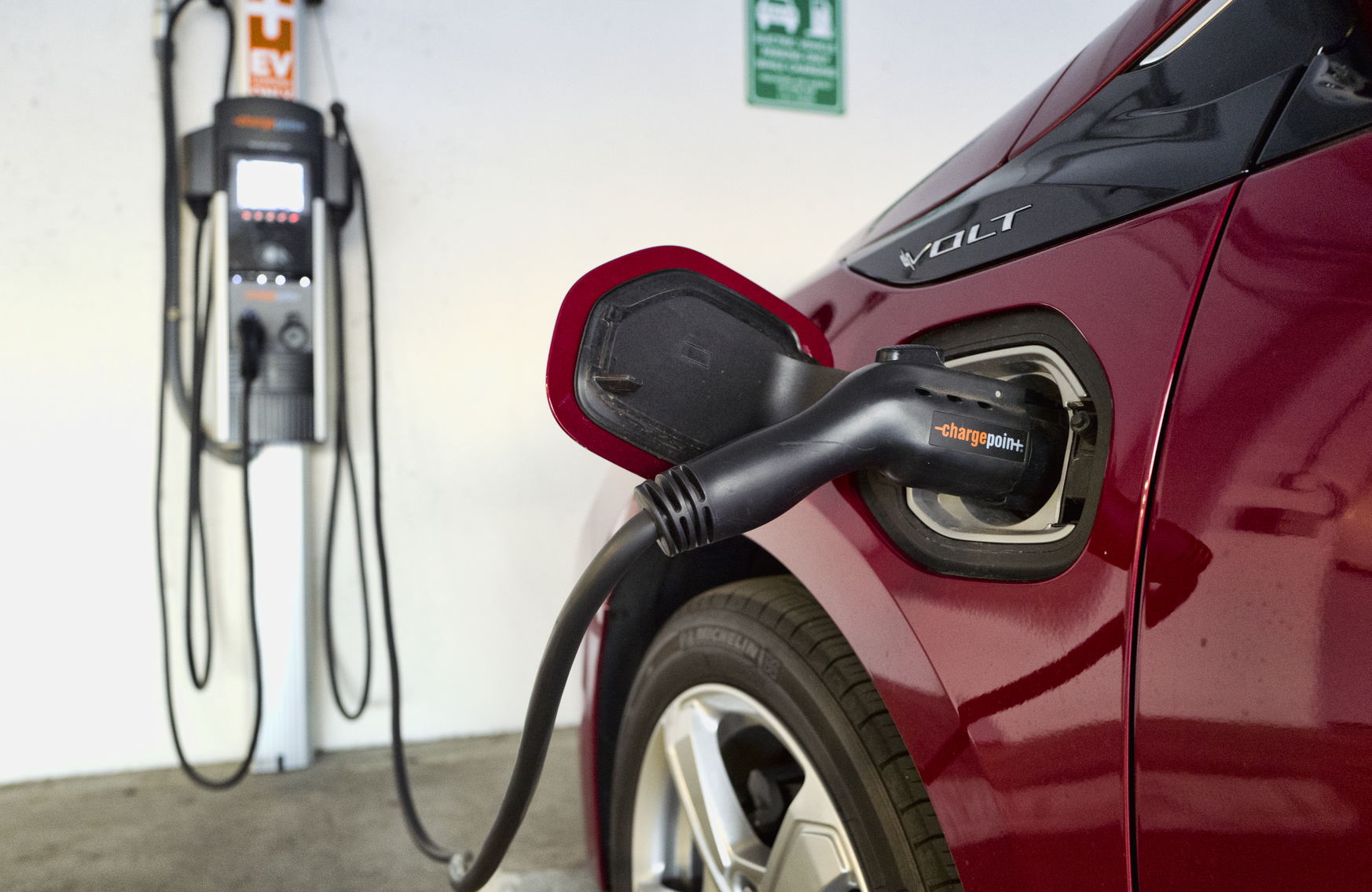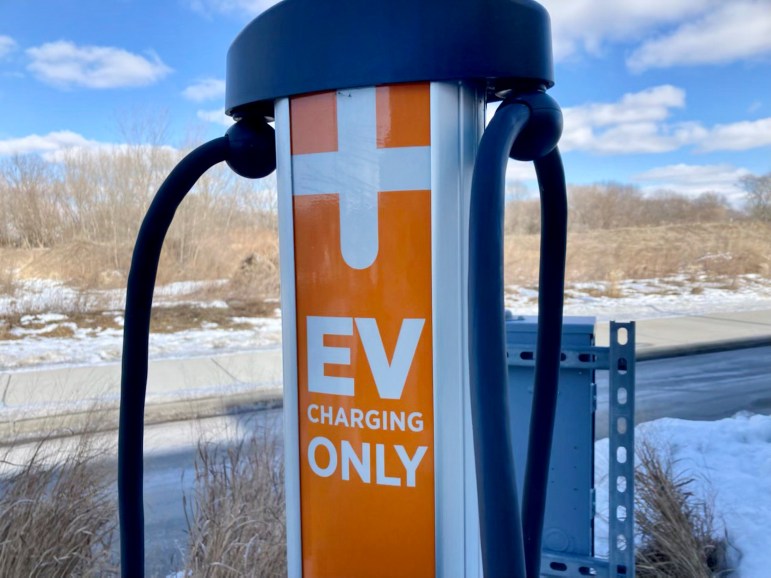Verona resident Libby Belden and her husband chose to buy an electric vehicle almost a year ago. But as Green Bay Packers season ticket holders, they’ve run into hurdles trying to attend games at Lambeau Field.
Belden has tickets to two regular season games each season and a preseason game. Since buying an electric SUV, she has had to stop in Appleton for a charging station compatible with her vehicle before heading home to the Madison area.
While the charger isn’t one that requires the vehicle to be plugged in overnight, it still takes about an hour of waiting because it’s not a high-speed charger.
News with a little more humanity
WPR’s “Wisconsin Today” newsletter keeps you connected to the state you love without feeling overwhelmed. No paywall. No agenda. No corporate filter.
“We actually decided, after having done that for a few games, to skip a game we were planning to go to with a bunch of family this year, which was really heartbreaking,” Belden said. “It was a night game. We knew we were going to have to drive home, it was already going to be really late, and then it was probably going to be about a four-hour drive home with having to sit at that charger for an hour.”
Belden is not the only EV owner who has to meticulously plan trips throughout Wisconsin. That’s because the Badger State has fewer publicly accessible charging stations than most of its neighbors, according to data provided by the Wisconsin Department of Transportation, or DOT.
Citing the Alternative Fuels Data Center Station Locator and state EV infrastructure plans, a DOT spokesperson said Wisconsin has 578 publicly accessible stations with 1,373 total ports, with 90 of those stations having high-speed chargers. Among surrounding states, only Iowa had fewer stations at 363 with 820 total ports.
For comparison, Minnesota had 756 publicly accessible charging stations, Michigan had 1,426 and Illinois had 1,304. DOT says those numbers do include temporarily unavailable stations.
Why is Wisconsin behind?
Even so, Emma Heins, policy manager for the nonprofit Electrification Coalition, said there are a couple of reasons Wisconsin is behind most of its neighbors in terms of public charging stations.
She said Wisconsin’s smaller population than Michigan, Illinois and Minnesota plays a role.
“Out of our neighboring states, we’re the smallest besides Iowa,” Heins said. “Companies are going to be investing money where there are people who are going to be using them.”
Another reason, she said, is that most of Wisconsin’s neighbors — except Iowa — have passed some form of clean energy legislation or a climate plan, signaling their goals of reducing carbon emissions in the next few decades.
In addition, Wisconsin has a law on the books that has hampered the development of EV chargers to a degree. Under current state law, only regulated utilities are allowed to bill customers for the amount of electricity they use. That means Wisconsin EV chargers typically bill customers for the amount of time their vehicle is plugged in.
“It’s just a much more laborious process for companies to go into investing in Wisconsin,” said Heins. “If you are going to be charging by the amount of time, that rate also depends on what kind of battery you have, or what kind of car you have. It just is very different for everyone.”
How could Wisconsin expand EV charging?
Over the next five years, Wisconsin is slated to receive $78.5 million dollars from the U.S. Department of Transportation through the National Electric Vehicle Infrastructure Formula Program. That would cover around 80 percent of the cost of building roughly 60 high speed charging stations.
Lawmakers in the state Legislature recently introduced a bill that would change the law to allow Wisconsin to use that federal money by enabling chargers to bill customers for the amount of electricity they use.
“We’ve seen a lot of bipartisan support, actually, for this legislation to be able to utilize the $78 million, which is really exciting,” Heins said. “I think that we will see it get done in the next couple of weeks or months. Then I think we’ll see much more investment from companies in the state knowing, ‘OK, they are willing to … allow us to be able to participate in this.’”
One EV owner who would welcome more fast-charging stations across the state is John Brillhart, a Minnesota resident who visits a family vacation property in Door County each summer.
“My problem when visiting Door County (is) it’s a little bit hard because the last place I can charge with a high-speed charger is in Wausau before I hit Door County,” Brillhart said. “If I want to vacation in northern Wisconsin or deviate outside the normal way that I travel, having those chargers that Wisconsin’s planning will enable me to spend more money in Wisconsin and travel more in different places.”
Wisconsin Public Radio, © Copyright 2026, Board of Regents of the University of Wisconsin System and Wisconsin Educational Communications Board.

